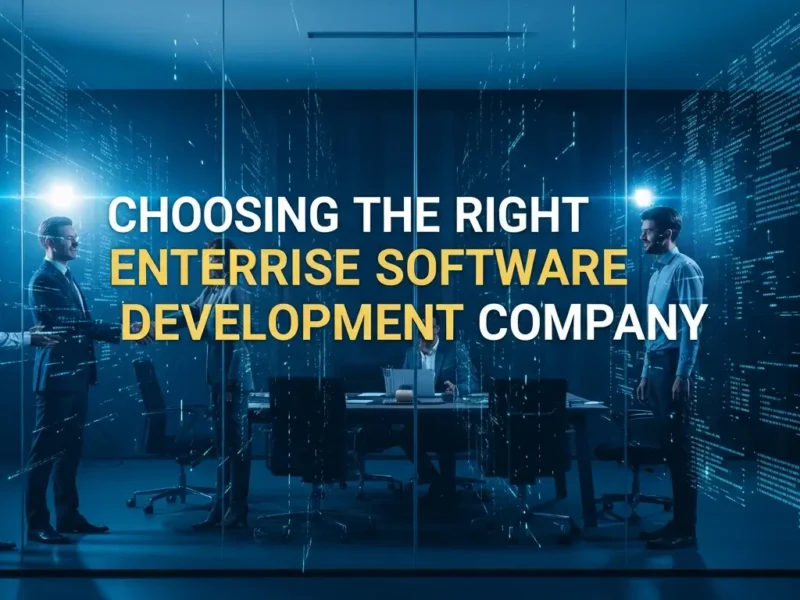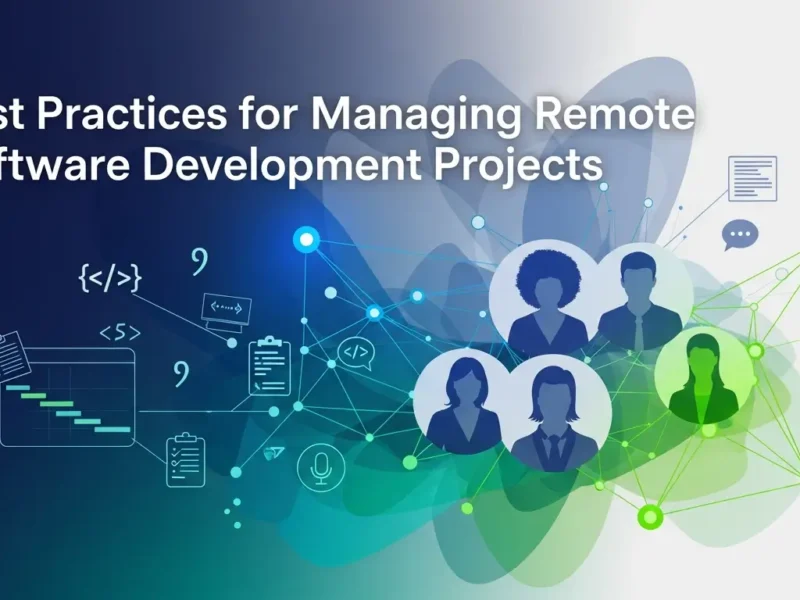In today’s fast-paced business world, fragmented data and disconnected processes are the silent culprits behind inefficiency, lost revenue, and stunted growth. Many companies operate with a patchwork of disparate software solutions—one for accounting, another for inventory, a third for customer relationship management (CRM), and so on. This siloed approach creates data inconsistencies, wastes time, and makes it nearly impossible to gain a holistic view of the business. The solution? An ERP system.
What is an ERP System? 🤔
An Enterprise Resource Planning (ERP) system is a type of business management software that integrates and automates various core business functions into a single, comprehensive platform. Think of it as the central nervous system of your organization, connecting all your departments and data points. Instead of using separate applications for finance, human resources, manufacturing, supply chain, and sales, an ERP brings all these functions together.
The core of an ERP system is a centralized database. This single source of truth eliminates data duplication and ensures that all departments are working with the same, up-to-date information. When a sales order is entered, for example, the system automatically updates inventory levels, triggers a production request, and sends a notification to the finance department—all in real-time. This level of integration is what sets ERP apart from individual business applications.
Many businesses find that off-the-shelf ERPs don’t fully meet their unique needs. In these cases, ERP Software Development Services become essential. This involves building a custom ERP system from the ground up, tailored to a company’s specific workflows, industry regulations, and business goals. A custom-built system ensures that the software perfectly aligns with a company’s operations, providing maximum efficiency.
Breaking Down the Core Components of an ERP
A modern ERP system is typically modular, allowing businesses to implement only the functionalities they need. The most common modules include:
- Financial Management: This is often the foundational module, handling accounts payable, accounts receivable, general ledger, and financial reporting. It provides a real-time view of your company’s financial health.
- Human Resources (HR): Manages employee data, payroll, recruitment, benefits administration, and performance management.
- Manufacturing: Helps in production planning, scheduling, materials requirement planning (MRP), and quality control.
- Supply Chain Management (SCM): Facilitates the management of inventory, procurement, logistics, and vendor relationships.
- Customer Relationship Management (CRM): A front-end module that helps manage sales, marketing, and customer service operations.
- Inventory Management: Tracks inventory levels, manages stock transfers, and helps in demand forecasting to prevent stockouts or overstocking.
How Does an ERP System Benefit Your Business?
Implementing an ERP system is a significant investment, but the return on investment (ROI) can be transformative. The benefits extend far beyond simple process automation, impacting every facet of the business.
1. Improved Efficiency and Productivity
Manual data entry and repetitive tasks are a major drain on resources. By automating these processes, an ERP system frees up employees to focus on higher-value activities. For instance, when a sales representative enters an order, the ERP automatically generates an invoice, updates inventory, and notifies the warehouse for shipping. This eliminates the need for manual communication between departments and drastically reduces processing time.
2. Enhanced Data Accuracy and Reporting
With a single, unified database, an ERP system eliminates data silos and inconsistencies. All departments access the same information, ensuring that reports are accurate and reliable. This leads to better decision-making. For a CEO, an ERP dashboard can provide a real-time, 360-degree view of the entire business—from sales performance and production schedules to financial health and inventory levels. This level of visibility is impossible with a series of disconnected applications.
3. Better Financial Management and Compliance
The finance module of an ERP provides a robust framework for managing cash flow, tracking expenses, and preparing financial statements. It can also automate complex compliance tasks and generate audit trails, making it easier to adhere to regulatory requirements like GAAP or IFRS. This not only reduces the risk of errors but also saves a significant amount of time during audits.
4. Streamlined Supply Chain and Inventory Management
For businesses dealing with physical products, a robust SCM and inventory module is a game-changer. An ERP system can forecast demand more accurately, helping you optimize inventory levels and avoid costly stockouts or overstocking. It provides real-time visibility into your supply chain, from raw materials to finished goods, allowing you to track shipments, manage vendor relationships, and respond quickly to disruptions.
5. Enhanced Customer Satisfaction
By integrating sales, marketing, and customer service data, an ERP’s CRM module gives your team a complete history of every customer interaction. When a customer calls with a question, a service representative can instantly see their order history, previous support tickets, and contact information. This personalized and informed service leads to higher customer satisfaction and loyalty.
Key Considerations Before Implementation
While the benefits are clear, a successful ERP implementation requires careful planning. For a truly bespoke solution, partnering with a reliable Enterprise software development company is crucial. Their expertise can ensure your system is built to your exact specifications, integrating seamlessly with your existing infrastructure and business processes.
- Define Your Needs: Before you even look at software, identify your pain points and what you hope to achieve. Are you struggling with inventory management? Do you need better financial reporting? A clear list of objectives will help you choose the right system.
- Choose the Right System: Not all ERPs are created equal. Some are designed for specific industries (e.g., manufacturing, retail), while others are highly customizable. Consider cloud-based vs. on-premise solutions, as well as the vendor’s reputation and support services.
- Data Migration: The process of moving your existing data into the new ERP system can be complex. Ensure you have a clear plan for data cleansing, validation, and migration to avoid errors.
- Employee Training: An ERP system is only as good as the people who use it. Comprehensive training is crucial to ensure user adoption and maximize the system’s potential.
Why a Cloud-Based ERP is a Game-Changer
Historically, ERP systems were expensive, on-premise installations requiring a significant IT infrastructure. Today, cloud-based ERP (or SaaS ERP) has become the standard. With a cloud solution, the software is hosted on the provider’s servers and accessed via the internet. This model offers several key advantages:
- Lower Upfront Costs: You pay a subscription fee instead of a large upfront license fee.
- Scalability: Cloud ERPs are easy to scale up or down as your business grows.
- Automatic Updates: The provider handles all software updates and maintenance, so you always have the latest features and security patches.
- Accessibility: Your team can access the system from anywhere with an internet connection.
The Bottom Line: Is an ERP System Right for Your Business?
If your business is struggling with fragmented data, inefficient processes, and a lack of real-time visibility, an ERP system is a powerful tool to drive growth and operational excellence. It’s more than just a software—it’s a strategic investment that fundamentally changes how you operate, giving you the competitive advantage you need to thrive.



